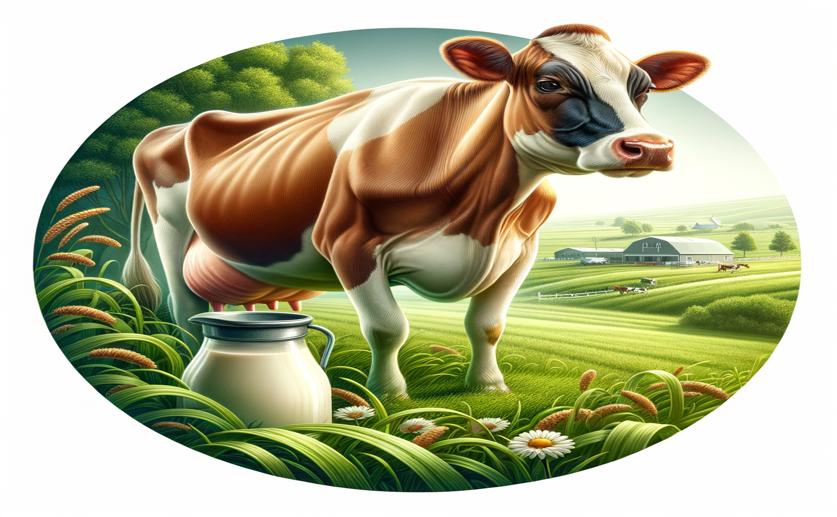
Unraveling the Link Between Milk Production and Cow Health
Jim Crocker
11th March, 2024

Image Source: Natural Science News, 2024
Key Findings
- Study at University of Hohenheim found genetics strongly influence milk yield in German Holstein cows
- Genetic links between milk production and health issues like mastitis and digital dermatitis were mixed
- Noncoding and evolutionary genetic variants significantly impact cow health and milk production traits
References
Main Study
1) Genomic dissection of the correlation between milk yield and various health traits using functional and evolutionary information about imputed sequence variants of 34,497 German Holstein cows.
Published 9th March, 2024
https://doi.org/10.1186/s12864-024-10115-6
Related Studies
2) The impact of environmental and nutritional stresses on milk fat synthesis in dairy cows.
3) A genomic assessment of the correlation between milk production traits and claw and udder health traits in Holstein dairy cattle.
4) A multi-tissue atlas of regulatory variants in cattle.



 6th March, 2024 | Jim Crocker
6th March, 2024 | Jim Crocker